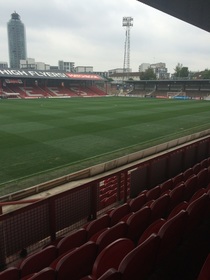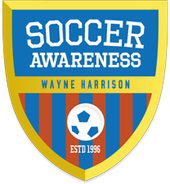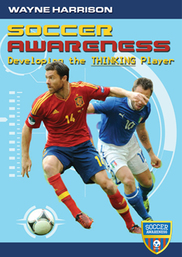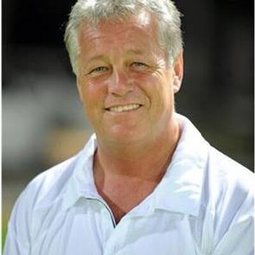When you transitioned from playing to coaching what was the biggest adjustment you had to make?
Identifying that the standard of players I am coaching are not the same standard of players I played with. I.e. Certain drills/session ideas I participated in as a player were not appropriate for the players I was coaching. I recognised that I come from a playing performance background where the result meant something. The players I initially coached were playing for fun and participation alongside still learning the game
How would you describe your coaching?
Holistic - a multidisciplinary approach
What experiences have most contributed to you coaching the way that you do?
Informal - Experiences and reflection, imitation and apprenticeship
Formal - Time bound, facilitated, assessed, institutional
Non - Formal - CPD, Workshops, seminars, clinics, conversations, observation
What areas of your coaching would you prioritise to continue working on and improving in the coming years?
Communication - Had a stutter since childhood
Observation - Would like to continually observe other coaches/leaders from other sports, business etc.
Develop a greater tactical understanding of the game and how to develop situational practices rather than drills to help improve player performance on match day.
How did you find your BSc (Hons) Sports Coaching and are there any elements that still impact your day-to-day coaching life?
- Developed a greater understanding of self and academic theory based problem solving
- Developed a greater understanding of coaching pedagogy. Acknowledgement of academic theory and practice of education
- Developed understanding of technical and tactical skills in sport for children and young people
- Developed understanding of coaching process and practice in applied contexts
- Developed understanding of the bio-psycho-social needs of children and young people in sport
Who - ‘Who’ am I coaching? Understanding of learner (Needs and Wants)
What - ‘ What’ am I coaching? Understanding of curriculum (Skill and knowledge of the role)
How - ‘How’ am I coaching? Understanding of learning environment (Activity structure and coaching behaviour)
What are your thoughts on the formal coach ed available to coaches within football (FA, UEFA license etc)?
The current FA formal coach education format has been recently reviewed and I believe they have improved for the better. The removal of final assessment and instead the coach educators support coaches within their own environment.
My UEFA B experience highlights that. I saw some very good coaches fail on the day of assessment because they didn’t meet the criteria of the coach educator (Even though the participants were us coaches and we had to participate in 27 other 45 minute assessments). Some coaches choked on assessment day and failed, where I have seen them before on summative assessments and perform extremely well. I missed the assessment due to have a knee operation two weeks before the assessment day however when I recovered from my operation, I received support in my own environment and developed as a coach by getting support how to develop my players at my own club.
Also some coaches on the course coached U14’s,15’s etc and they were expected to coach men, where some may have had no experience in doing so. Whilst completing my UEFA B License, my coach educator videoed my session and watching myself back on DVD was a powerful education tool.
You work within a football Academy and the amount of players who make it to football's professional ranks is notoriously small - how does that impact on your coaching and treatment of players, if at all?
My coaching environment is slightly different as my club is semi-professional, so the players already have a slight realization they’re not going to turn professional.
The first aim for the majority of my players is getting a first team contract (The 1st team are full time). This impacts my coaching and treatment of the players with regular reminders of their behaviours and actions - I.e. Would they do the same thing if they were with the first team?
In 2015 I did a Coaching Conversation with Miguel Rios who commented that "too often football academies are run on fear - the fear of being released". Have you found this to be accurate in your experience and, if so, does it inhibit the learning and development of some players?
My previous experience within a professional academy there was more a “fear” from the parents than the players. This inhibited the learning and development of the players as their focus was elsewhere. Education to the parents is important so this “fear” doesn’t relay to the players and effect training/match day performance
Are there certain elements (coaching or club/environment) that you think are crucial in developing young players?
- Freedom
- Opportunity
- Flexibility
I know some people who have worked within professional football and have heard that as a sport it can be quite resistant to change or new ideas at times - is this something you have found to be true?
Yes, the old notion of “we’ve always done it this way” and coaches/players aren't always receptive to new methods/ideas. However, they need educating as always doing a certain task one way will only produce a certain type of result. Allowing/adapting to a change will allow the scope for different successes/failures.
Football is open to new ideas regarding sports science/performance analysis etc as this field is still growing and developing. However, training methods/periodisation, coaches and players are still resistant to change.




 RSS Feed
RSS Feed
